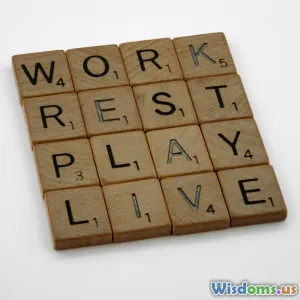
Why Date Nights Fade Away and How to Bring Them Back
6 min read Explore why date nights often fade in marriages and discover practical ways to revive this vital connection ritual. (0 Reviews)
Why Date Nights Fade Away and How to Bring Them Back
Introduction
In the whirlwind of everyday life, many couples notice an unsettling shift: their regular date nights slowly become rare or disappear altogether. What once was a treasured ritual designed to nurture and reignite intimacy gradually fizzles out, leaving some feeling disconnected or drifting apart. This common phenomenon raises an essential question—why do date nights fade away, and more importantly, how can couples bring them back?
Date nights aren’t just pleasant distractions; they play a crucial role in preserving emotional bonds, improving communication, and maintaining the spark that ignited the relationship in the first place. Research shows that couples who regularly engage in shared activities like date nights experience higher relationship satisfaction and resilience (Study by the University of Georgia, 2016).
This article explores the nuanced reasons why date nights tend to fade and offers practical strategies to reclaim their magic, ensuring that couples can nurture their connection, even amidst life’s relentless pace.
The Reasons Date Nights Fade Away
1. The Overwhelming Load of Responsibilities
As marriages mature, the increase in daily responsibilities often takes center stage. Careers, household chores, children, aging parents, and financial pressures converge into a demanding juggling act. For example, a 2021 Pew Research Center survey found that 55% of married respondents said responsibilities often limit their time spent with their spouse.
With much energy consumed by meeting these demands, couples may unintentionally deprioritize dedicated time together.
2. Comfort Becomes Complacency
After the honeymoon phase, comfort can subtly morph into complacency. When couples feel secure, they might assume constant togetherness at home replaces the need for special outings. Although comfort is vital for a healthy relationship, it doesn’t substitute for intentional, focused time that facilitates deeper connection and excitement.
3. The Erosion of Rituals
Regular date nights are a ritual that sustains romance. When habits like scheduling weekly or monthly dates fall through, the connection ritual is lost. Many couples admit to irregular or spontaneous dates, but without consistent scheduling, these moments can easily disappear.
4. Digital Distractions
The omnipresence of smartphones, streaming services, and social media has transformed how couples spend downtime. Couples might sit together but remain individually engaged on devices, reducing meaningful interaction. This digital interruption fragments attention and diminishes shared experiences.
A 2018 study by the University of Kansas found that 70% of respondents felt their partners paid "too much attention" to their devices, making them feel less connected.
5. Emotional Fatigue and Stress
Chronic stress from work, health issues, or family dynamics can drain emotional energy. When exhaustion takes over, initiating or participating in date nights may feel like an added burden rather than a rejuvenating activity.
Consequences of Letting Date Nights Fade
When couples neglect date nights, consequences can ripple beyond missing fun experiences:
- Reduced intimacy: Lack of one-on-one time diminishes emotional closeness.
- Weakened communication: Without intentional connection opportunities, misunderstandings increase.
- Increased risk of drifting apart: Prioritizing other tasks over romantic engagement can lead to feelings of alienation.
A study published in the Journal of Marriage and Family concluded that couples who stopped regular shared activities saw a higher likelihood of relationship dissatisfaction over five years.
How to Revive Date Nights: Practical Strategies
1. Reframe Date Night as a Relationship Priority
Make it clear that date nights aren’t a luxury but essential for marital health. Couples can discuss how these moments reaffirm their commitment and reduce stress. Scheduling dates on calendars and treating them as fixed appointments increases the likelihood they’ll happen.
2. Embrace Flexibility and Creativity
Date nights don’t have to be formal dinners every time. Creativity reduces barriers:
- Home-cooked themed dinners
- Movie nights with no phones allowed
- Outdoor activities like hiking or star gazing
- Learning a new hobby together like dancing or painting
For instance, a couple from Chicago revitalized their date nights by alternating the responsibility to plan unique at-home experiences, rekindling excitement with minimal expense.
3. Set Device Boundaries
To combat digital distractions, establish clear
Rate the Post
User Reviews
Popular Posts





















